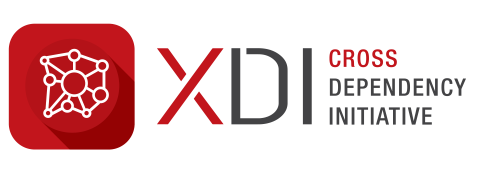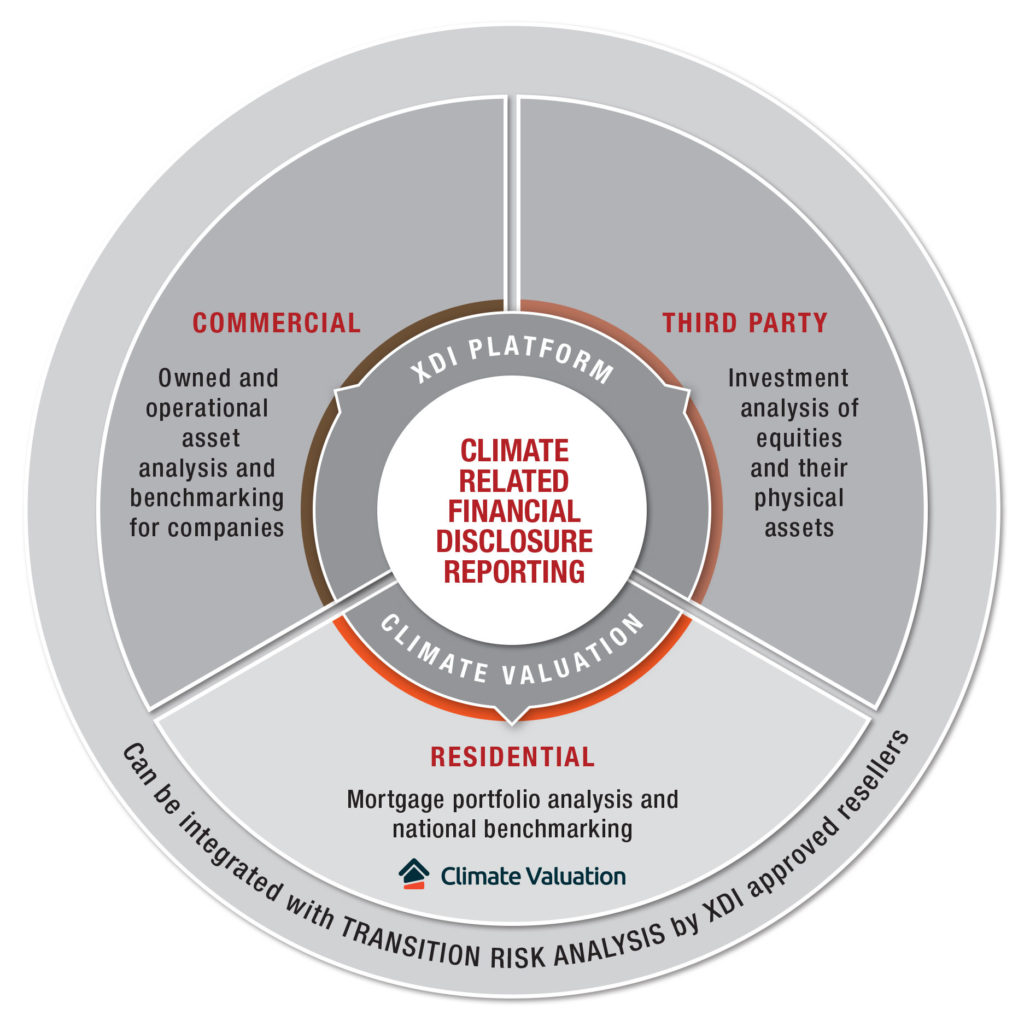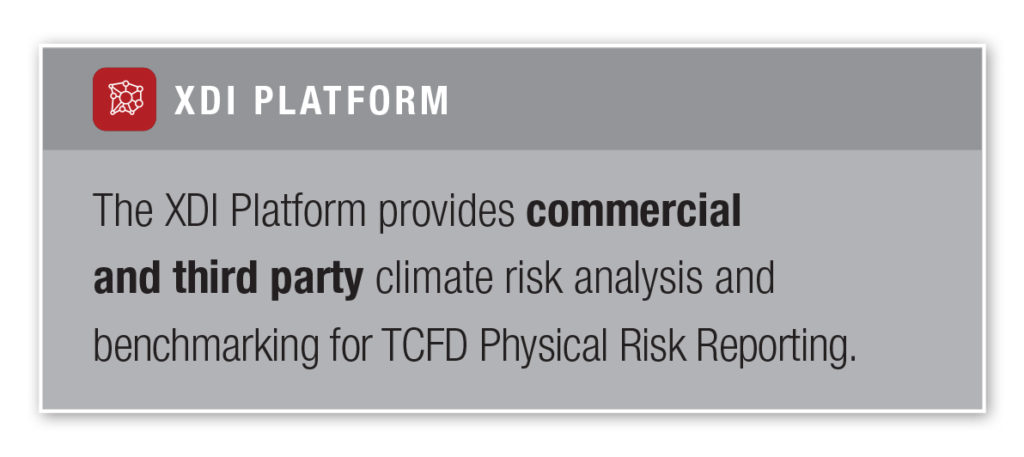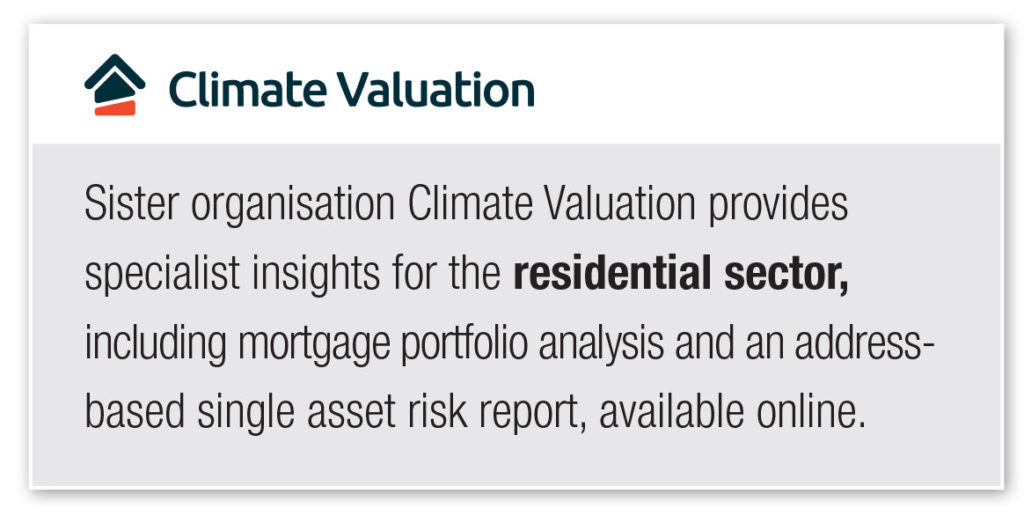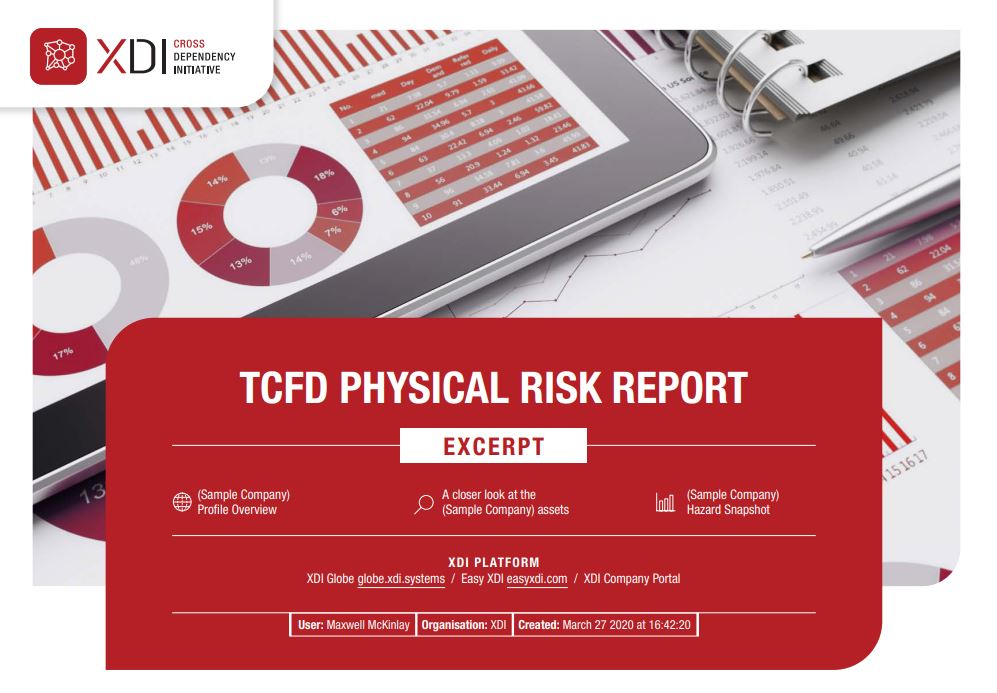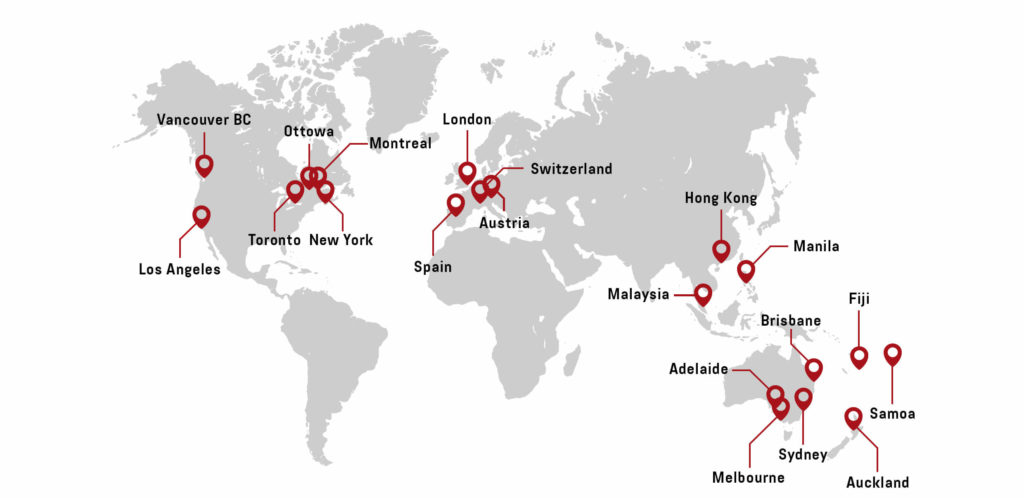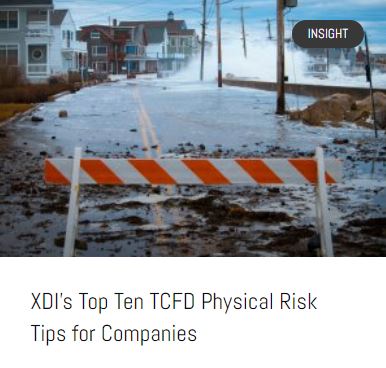TCFD Reporting
Global Investment & Engineering Grade
Physical Climate Risk Analysis Report
The Need For TCFD Reporting
Following the Task Force on Climate-related Financial Disclosures (TCFD) recommendations delivered by the FSB in 2018, there has been an accelerated focus on TCFD reporting by industry and government recognising the need for disclosure of the financial implications of climate change.
It’s now widely recognised that climate change presents a material threat to business operations, investment portfolios and economic stability. XDI leads data driven tcfd reporting and analysis to address what regulatory bodies worldwide are requiring for the financial disclosure of physical climate risk. This includes direct impacts of current and future weather events, and stress testing of asset portfolios.
XDI works extensively with infrastructure organisations, property trusts, banks and investment firms to support climate financial disclosure in Australasia, Europe, UK and North America. As decision makers strive to expand the management of the issue, XDI is rapidly delivering the data that supports those needs.
World Leading Physical Climate Risk Analysis & TCFD Reporting
XDI Analysis Supports Climate Related Financial Disclosure - TCFD Reporting

Direct & Indirect Risk
Hazard impacts over time
Business disruption probability
Loss of productivity
Economic impacts by region
Upstream dependencies for critical infrastructure assets
Impacts on insurability

Emissions Scenarios
For physical risk analysis:
RCP 8.5 is used to stress test assets or portfolios under a worst-case emissions scenario
RCP 2.6 is used for best case scenario
RCP 4.5/6.0 can be added for a moderate mitigation pathway

Time Frames
Probabilistic analysis:
Five year or per decade
With baseline from 1990 to 2100

Metrics and Outputs
Average Annual Loss
Total Technical Insurance Premium
Percentage of Value-at-Risk
Number of High Risk Properties
Percentage of High-Risk Properties
Failure Probability
Productivity Loss
XDI TCFD Physical Risk Reports provide over 40 slides of analysis results
Global Scale. Asset Level Granularity
XDI starts with asset level analysis, specified down to component parts, then scales up to stress test whole portfolios for physical climate risk around the world.
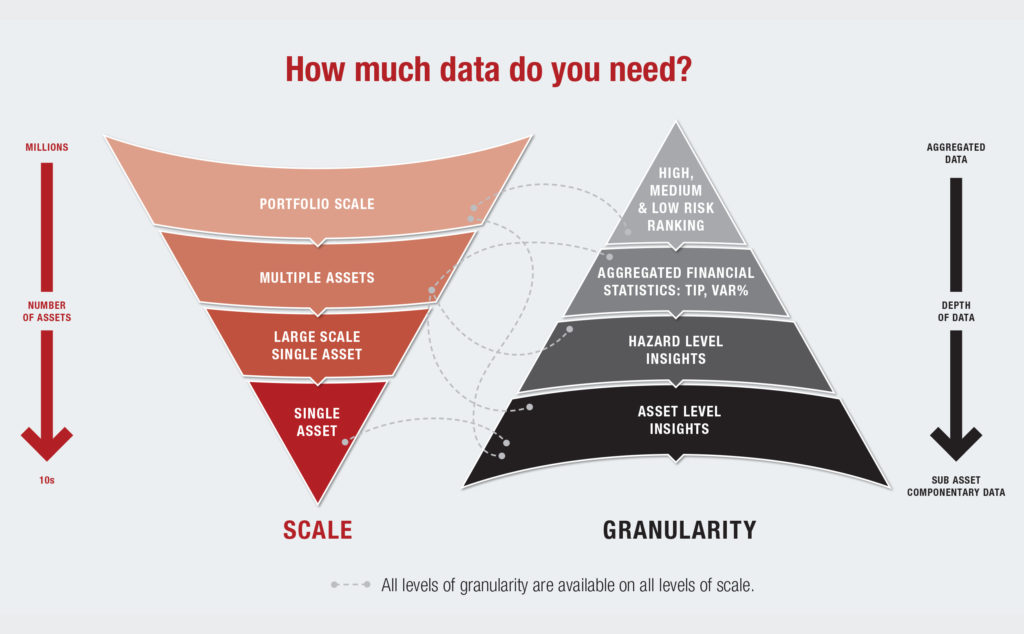
“GPT wanted a deeper understanding of the potential climate related risks that are foreseeable for our fixed property assets. We used XDI to model our asset level physical risks and then work with our development and capital works teams to implement practical solutions to minimise the potential impacts. XDI is a key tool in our climate adaptation planning.”
Steve Ford
Head of Sustainability & Energy The GPT Group
XDI Approved Re-sellers
We have established resellers providing transition risk analysis in UK and Europe, Australasia, and North America.
Global leaders in Physical Climate Risk Analysis & TCFD Reporting
XDI analysis ranks the highest for hazards covered, geographical reach, and capacity for analysis of large numbers of assets.
Companies asset data
Countries covered
Residential addresses analyzed
Commercial assets analyzed
Powered by the award-winning Climate Risk Engines, the XDI Platform accesses asset data for over 9,000,000 companies around the world. To date, XDI has analysed over 37 million residential addresses and 2,000,000 commercial assets globally.
INSIGHTS - TCFD Blog ARticle
XDI’s Top Ten TCFD Physical Risk Tips for Companies
With New Zealand making Task Force on Climate-related Financial Disclosures (TCFD) reporting compulsory and the Canadian government linking mandatory TCFD reporting to corporate COVID relief, it’s the time for businesses to make TCFD a standard part of their risk management regimes. As former Governor of the Bank of England and current United Nations Special Envoy on Climate Action and Finance Mark Carney has said, all companies need to understand and use the TCFD system as climate risks increase. Click here to read the full Blog Article
